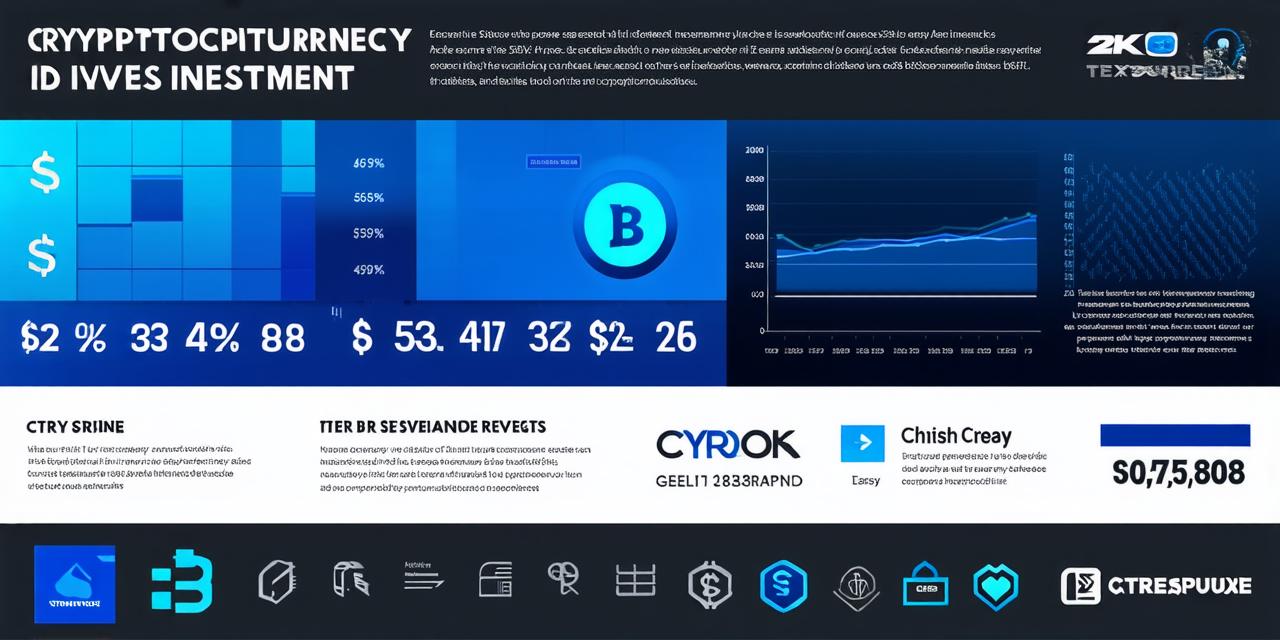Cryptocurrency has taken the world by storm. It has changed the way we think about money, finance, and even the internet. With so many options available, it can be challenging to decide which cryptocurrency to invest in. In this guide, we will explore some of the most popular cryptocurrencies on the market and help you make an informed decision.
Bitcoin: The Pioneer
Bitcoin is the first and most well-known cryptocurrency. It was created in 2009 by an unknown individual or group using the pseudonym Satoshi Nakamoto. Bitcoin is a decentralized digital currency that operates on a blockchain network, allowing for secure and transparent transactions without the need for intermediaries like banks.
Bitcoin is often compared to gold because of its limited supply. There will only ever be 21 million bitcoins in existence, which makes it a finite resource, unlike fiat currency. Bitcoin’s value is determined by supply and demand, making it highly volatile but also potentially lucrative for investors.
Pros:
- Decentralized network, allowing for secure and transparent transactions without intermediaries
- Limited supply, making it a finite resource
- Highly liquid and widely accepted as a form of payment
Cons:
- Volatile value, making it highly risky for investors
- Slow transaction times due to its blockchain architecture
Bitcoin Cash: The Hard Fork
Bitcoin Cash is a fork of Bitcoin that aims to increase the block size limit and improve scalability. It was created in 2017 as a result of a hard fork, which is essentially a split of the Bitcoin network into two separate networks with different rules and protocols. Bitcoin Cash claims to offer faster transaction times and lower fees compared to Bitcoin.
Pros:
- Faster transaction times and lower fees than Bitcoin
- Increased block size limit, allowing for more transactions per second
Cons:
- Limited adoption and acceptance, as not all merchants and exchanges support Bitcoin Cash
- Potential for network fragmentation if other hard forks occur in the future
Ethereum: The Smart Contract Platform
Ethereum is a decentralized platform that enables developers to build smart contracts and decentralized applications (dApps) on top of it. It was created in 2015 by Vitalik Buterin, who also co-founded Bitcoin Magazine. Ethereum uses its own cryptocurrency called Ether, which is used to pay for transactions and execute smart contracts.
Ethereum’s value is determined by supply and demand, similar to Bitcoin. However, its unique feature is the ability to run smart contracts, which are self-executing programs that can automate complex processes and reduce costs. This has made Ethereum popular among developers and businesses looking to build decentralized applications.
Pros:

- Unique feature of smart contracts, allowing for automation of complex processes
- Large and active developer community, leading to continuous innovation and improvement
Cons:
- Slow transaction times due to its blockchain architecture
- High gas fees (the cost of executing smart contracts)
Ripple: The Centralized Cryptocurrency
Ripple is a centralized cryptocurrency that was created in 2012 by Brad Garlinghouse and Chris Larsen. Unlike Bitcoin and Ethereum, Ripple is not decentralized and operates under a closed network controlled by Ripple Labs. Ripple’s primary use case is for cross-border payments, allowing banks and financial institutions to settle transactions quickly and efficiently.
Ripple’s value is determined by supply and demand, similar to Bitcoin and Ethereum. However, its centralized nature makes it more stable and less volatile compared to other cryptocurrencies.
